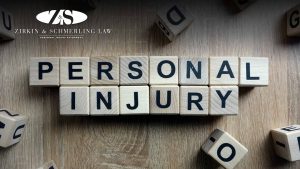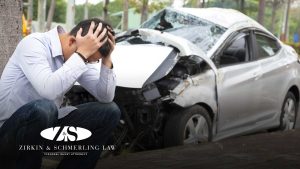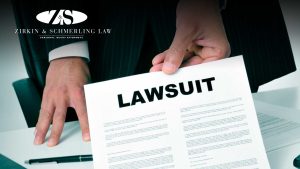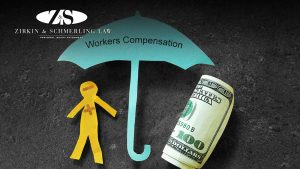Though individuals can develop emotional and psychological trauma after various incidents, car accidents tend to be the leading cause of post-traumatic stress disorder (PTSD). Those who have been involved in severe automobile accidents are at higher risk of developing symptoms of emotional distress and PTSD.
At Zirkin & Schmerling Law, a Maryland emotional distress lawyer has years of experience helping victims in the aftermath of a car accident, dog bite, or other traumatic injury.
Why Emotional Distress Matters in Personal Injury Cases

Injuries to your body tend to be the immediate focus of concern for most victims. However, the psychological trauma that can follow is often much more severe and more complex to recover from.
It is also not uncommon for emotional injuries to go undiagnosed as they are harder to detect and are not treated with as much sympathy as physical injuries.
Emotional distress can be as debilitating as physical injuries and also deserves immediate attention.
Although emotional distress is often overlooked, victims have a right to pursue a personal injury claim to receive compensation. With the help of an experienced Maryland attorney, you can receive the guidance you need to get the compensation you deserve.
We understand how devastating physical and psychological injuries can be. We are here to help you receive the compassionate care and service you need to win your case and get the benefits you deserve.
Reasons to File an Emotional Distress Claim in Maryland
While PTSD is the medical term most often used to describe ongoing emotional distress following an accident, there are other types of emotional and psychological injuries that a victim can suffer from:
PTSD
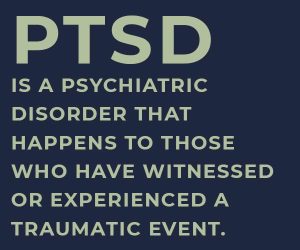
PTSD is a psychiatric disorder that happens to those who have witnessed or experienced a traumatic event. People who develop PTSD tend to have disturbing thoughts and intense psychological and emotional reactions to the events they experience. Understanding the correlation between severe car accidents and the development of post-traumatic stress disorder (PTSD) is crucial. Our seasoned team recognizes the unique challenges victims face, both physically and emotionally, and is well-equipped to secure compensation for those who have suffered severe emotional distress.
Acute Stress Disorder
Often, victims or witnesses of traumatic events will first develop acute stress disorder before later developing PTSD. While PTSD often doesn’t occur until months after the event, acute stress disorder can show up in the days immediately following the incident. People with this disorder will often experience flashbacks and nightmares or feel numb and detached from themselves.
Adjustment Disorder
Adjustment disorder also follows stressful events, but the behaviors and symptoms tend to be more severe and intense than what would be reasonably expected for the incident. For example, if someone only experienced a minor car accident with little to no injuries, they may have an adjustment disorder if they develop severe psychological symptoms. The symptoms of an adjustment disorder can show up in the first couple of months following an incident, but they tend to last no more than six months, unlike PTSD, where the symptoms can last for years.
Recognizing symptoms of emotional injuries is essential for seeking timely medical attention and building a robust legal case.

Symptoms of Emotional Distress
Everyone reacts differently to traumatic events, and there is no way to predict precisely what symptoms a person will develop. However, on average, the following symptoms are most commonly associated with those who have developed emotional distress or PTSD following a negligent infliction or intentional infliction of emotional distress (IIED):
Intrusion:
- Intrusive thoughts or memories relating to the accident.
- Nightmares.
- Flashbacks.
- Reliving the memories in your mind.
Avoidance:
- Avoiding people or places that remind you of the accident.
- Not talking about the accident.
- Denying the injuries stemmed from an intentional infliction of emotional distress.
- Dismissing the idea they sustained emotional harm.
Extreme changes in cognition or mood:
- Memory issues.
- Negative thoughts, distrust, and distorted beliefs.
- Excessive fear, jumpiness, or worry.
- Depression, anxiety, shame, or guilt (especially if others sustained more injuries).
- Panic attacks.
- Mental anguish.
- Becoming angry when told they’re suffering emotionally.
Extreme physical symptoms:
- Easily startled.
- Violent outbursts.
- Destructive and reckless behavior.
- Paranoia.
- Difficulty concentrating or sleeping (sometimes called guilt insomnia).
Pursuing a Personal Injury Claim That Includes Emotional Distress Damages

In the aftermath of a car accident, immediate medical attention is paramount. Documenting the incident, seeking medical treatment, and involving experienced personal injury attorneys are essential steps.
Our team specializes in helping victims receive compensation not only for physical symptoms that indicate a physical injury but also for the often-overlooked emotional pain. A well-documented injury makes it easier for your lawyer to prove compensation is due.
Types of Pain, Suffering, and Emotional Distress Claims
Non-monetary damages can encompass various aspects, including loss of enjoyment of life, emotional distress, and psychological injuries. Recognizing the full range of compensable damages is crucial for building a comprehensive case.
When You Need an Emotional Distress Attorney
If initial compensation offers prove inadequate, pursuing litigation becomes an option. Detailed documentation of physical and psychological symptoms, along with the guidance of experienced emotional distress lawyers, strengthens the likelihood of securing fair compensation.

Calculating Compensation for Your Emotional Distress Claim
When determining a monetary amount, the judge or jury will listen to the testimony and review the evidence to determine the nature and extent of your situation.
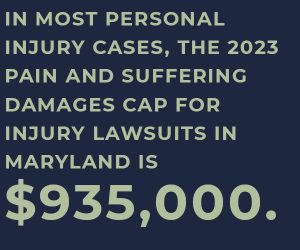
Here are a few questions that have to be answered about your situation:
- How severe is the injury?
- How long did the physical injuries last?
- How much impact does severe emotional distress have on daily life?
- Are you able to participate in activities typical for a reasonable person?
- Did your injury result in lost wages?
- Will the physical symptoms or emotional suffering impact your future?
- Did other legal issues stem from the incident?
What is Maryland’s Compensation Limit?
In Maryland, there is a cap on the amount a victim can receive for an emotional distress case. In most personal injury cases, the 2023 pain and suffering damages cap for injury lawsuits in Maryland is $935,000.
What To Do When You Experience a Traumatic Incident

Following a traumatic incident, seeking immediate medical attention is crucial. Our personal injury attorneys stress the importance of documenting injuries, symptoms, and the accident scene, providing essential evidence for emotional distress claims.
As the injured person, you are the one who knows the details of the incident and subsequent injuries. You also know the environment and the people involved.
Here are some of the most important jobs for you, the claimant:
- Seek immediate medical care to attend to your injuries.
- Document the details of the incident as thoroughly as you can.
- Keep all records of your medical treatments.
- Don’t admit your fault in the accident until you’ve spoken to your lawyer.
- Keep all receipts for any travel you had to do to get treatment.
- Maintain records of all your insurance claims, police reports, photos, etc., to give to your lawyer to help them make your case.
- During your recovery, keep track of the pay you receive from your employer, insurance company, or any other agency.
- Be patient. This process takes time, even if you choose to settle. Focus on your health and let your lawyer focus on your claim.
Types of Damages Awarded
In addition to covering physical damages, compensation for emotional suffering is equally vital. Victims can seek damages for loss of enjoyment of life, emotional distress, and psychological injuries. Our experienced team fights to secure comprehensive compensation for the long-term impact of emotional trauma.
Additional compensation may be awarded if your case includes intentional infliction of emotional distress. If your attorney can prove emotional distress stems from being subjected to outrageous conduct that is so extreme that tangible emotional damage results.
Pursuing a Lawsuit for Adequate Compensation

Pursuing a lawsuit is a viable option if initial financial compensation proves insufficient. Documenting physical and psychological symptoms and engaging experienced emotional distress lawyers strengthens the case for fair compensation.
Our experienced Maryland personal injury lawyers understand the legal definitions of negligent infliction and intentional infliction of emotional distress and can help you recover damages appropriate for your injuries. Your word alone won’t convince a judge or jury that you deserve to be compensated for economic damages and non-economic damages.
When building your case, an experienced emotional distress attorney will collect evidence from many sources, including:
- Expert witnesses
- Medical records
- Medical bills
- A family member
- Any car or medical insurance claim related to the accident

Compensation for Emotional Distress Calculation
Determining the monetary amount for emotional pain and suffering involves assessing the severity and duration of distress. Maryland’s cap on damages is a consideration, with an annual increase. Our legal experts work diligently to present compelling evidence for fair compensation.
What Happens During an Emotional Distress Lawsuit
While each emotional distress lawsuit is unique, the process for filing a claim follows the same general path in most states. It’s important to remember this is a general guideline of what to expect, not a comprehensive list. Check with your attorney to determine what steps you will take to prove your anxiety and distress deserve compensation.
Here are a few steps you can expect to follow when you file an emotional distress claim:
- Schedule a free consultation with an experienced attorney.
- Select a personal injury claims attorney who is in good standing with the local bar association, is familiar with bystander law in your state, and has won mental suffering and emotional distress cases.
- With help from your lawyer, assess the cause of your personal injury lawsuit and determine what wrongful actions contributed to your distress.
- Assess your level of emotional trauma, mental suffering, and severe emotional distress.
- Evaluate the economic and non-economic damages you’ve suffered.
- Collect evidence from the incident.
- Determine if your case meets the legal definition so that you can sue for emotional distress.
- Evaluate any settlement offer you’ve received and weigh it against the cost of legal action.
- If you’ve decided to sue for emotional distress, file the suit.
- Both sides of the lawsuit share documents and evidence to better understand all aspects of the case during discovery.
- If your case can’t be settled outside of court, there will be a date set to go to trial before a judge or jury.
- Both sides will present evidence at the trial, and a decision will be made by the judge or jury.
- If the judgment favors your claim, the responsible party (or parties) will arrange delivery of appropriate compensation after the trial ends.

Contact Experienced Maryland Emotional Distress Attorneys
Whether you are pursuing a car accident, dog bite, personal injury, or IIED case, it can be complicated to prove the extent of your emotional distress. It is not easy to place a dollar amount on emotional pain and thus requires extensive documentation and evidence to convince the court.
At Zirkin & Schmerling Law, we will fight hard to win you the compensation you deserve. We understand how drastically an emotional and psychological injury like anxiety, emotional distress, and PTSD can alter a victim’s life.
Contact us or call us at 410-753-4611 to schedule an appointment with one of our personal injury attorneys today.

